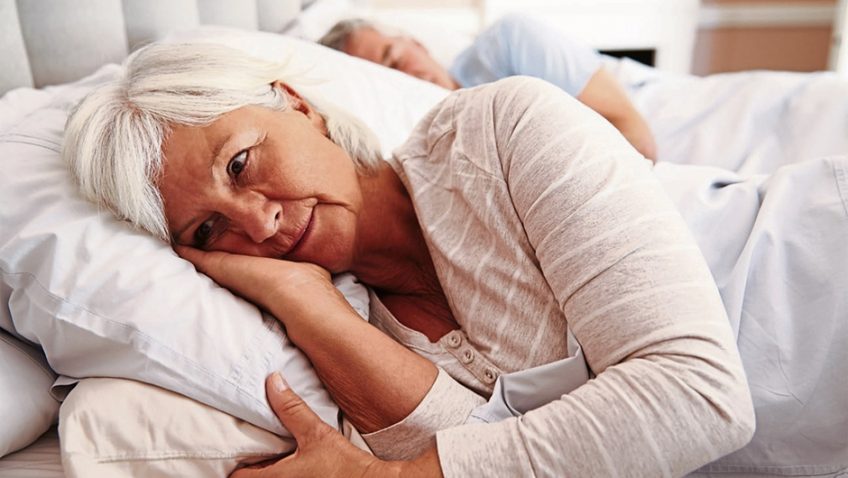While sleep researchers are constantly learning more about why we need sleep, one thing has been clear since the beginning of time: if we don’t get enough of it, we falter. Sleep deprivation has been identified as a factor in countless tragedies including friendly fire incidents in the military, train accidents, plane crashes, industrial and automobile accidents, and medical misjudgments.
Some of us have personally experienced the agony of sleep deprivation when taking care of a newborn baby, doing shiftwork, driving for long periods of time, or trying to meet a looming deadline. The effects of sleep deprivation may be subtle at first: our thinking may be a bit more sluggish, our memory not quite as precise, and our movements a bit slower. However, the impact often quickly accelerates, and before we know it we may feel like we are moving through the world in a slow-motion state of clumsiness and increasing confusion.
What is less obvious is that sleep deprivation actually impairs our ability to process and store the memories that we form during our waking hours. Furthermore, if sleep deprivation is chronic (occurring over months or years), it may also be a risk factor for Alzheimer’s disease.
A good night’s sleep refreshes body and mind, but a poor night’s sleep can do just the opposite. A study from Washington University School of Medicine in St. Louis, Radboud University Medical Centre in the Netherlands, and Stanford University has shown that disrupting just one night of sleep in healthy, middle-aged adults causes an increase in amyloid beta, a brain protein associated with Alzheimer’s disease. And a week of tossing and turning leads to an increase in another brain protein, tau, which has been linked to brain damage in Alzheimer’s and other neurological diseases.
“We showed that poor sleep is associated with higher levels of two Alzheimer’s-associated proteins,” said David M. Holtzman, MD, the Andrew B. and Gretchen P. Jones Professor, head of the Department of Neurology and the study’s senior author. “We think that perhaps chronic poor sleep during middle age may increase the risk of Alzheimer’s later in life.”
These findings, published in July this year in the journal Brain, may help explain why poor sleep has been associated with the development of dementias such as Alzheimer’s.
Work out how much sleep you need to feel well rested
Although the average person requires 7-9 hours of sleep, individuals may vary. How do you know how much is best for you? If you feel refreshed, awaken without an alarm clock, feel alert throughout the day (without excessive use of caffeine), and do not fall asleep immediately after your head hits the pillow, chances are you are getting enough sleep. If you are not getting enough sleep, gradually increase the amount of time you sleep until you feel well rested, and prioritise getting that amount on a regular basis.
Prioritising optimal sleep helps your brain function faster, remember better, and just may help to minimize the risk of Alzheimer’s. Optimal sleep also helps reduce the risk of accidents, and maximises mood, quality of life, and immune functioning. With all of these benefits, it’s time to prioritise getting some good sleep.
There is plenty of advice out there for sufferers and it is recommended that you try physical methods before resorting to drugs.
Tips from the Sleep Foundation
- Stick to a sleep schedule of the same bedtime and wake up time, even on the weekends. This helps to regulate your body’s clock and could help you fall asleep and stay asleep for the night.
- Practice a relaxing bedtime ritual. A relaxing, routine activity right before bedtime conducted away from bright lights helps separate your sleep time from activities that can cause excitement, stress or anxiety which can make it more difficult to fall asleep, get sound and deep sleep or remain asleep.
- Avoid naps, especially in the afternoon. Power napping may help you get through the day, but if you find that you can’t fall asleep at bedtime, eliminating even short catnaps may help.
- Exercise daily. Vigorous exercise is best, but even light exercise is better than no activity. Exercise at any time of day, but not at the expense of your sleep.
- Check your bedroom your sleep environment to establish the conditions you need for sleep. Your bedroom should be cool – between 60 and 67 degrees. The room should also be free from any noise that can disturb your sleep. and be free from any light. Consider using blackout curtains, eye shades, ear plugs, “white noise” machines, humidifiers, fans and other devices.
- Sleep on a comfortable mattress and pillows. Make sure your mattress is comfortable and supportive. The one you have been using for years may have exceeded its life expectancy – about 9 or 10 years for most good quality mattresses. Have comfortable pillows and make the room attractive and inviting for sleep but also free of allergens that might affect you.





